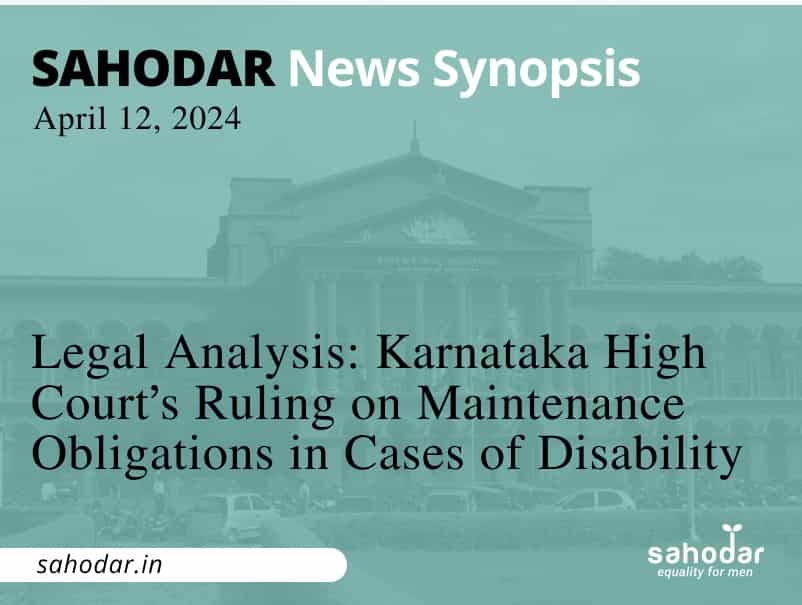Introduction
In recent years, legal discourse has increasingly focused on the intersection of disability rights and family law, particularly concerning maintenance obligations in marital disputes. The Karnataka High Court’s recent ruling in [Case Name] has brought this issue to the forefront, providing a nuanced examination of the rights and responsibilities of spouses, particularly when one party is disabled. This article aims to provide a comprehensive legal analysis of the judgment, exploring its implications within the broader context of family law and disability rights.
Background
The case at hand involved a marital dispute between [Husband’s Name] and [Wife’s Name], wherein the husband sought the annulment of the marriage, alleging that the wife had voluntarily left the matrimonial home. In response, the wife petitioned for interim maintenance under Section 24 of the Hindu Marriage Act, 1955, which was initially granted by the court. However, subsequent developments, including the husband’s stroke and resulting 75% disability, complicated the matter.
Key Issues
- Maintenance Obligations: The central issue before the court was whether the husband, with a 75% disability and unable to work, could be compelled to provide maintenance to his estranged wife.
- Wife’s Financial Position: Another crucial aspect was the wife’s earning capacity and financial independence, which the court scrutinized in determining the necessity of maintenance from the disabled husband.
- Father’s Financial Responsibility: The court also examined the husband’s father’s financial capability and the extent of his obligation towards supporting the grandchild, given the circumstances.
Legal Analysis
- Disability and Maintenance: The court emphasized that maintenance cannot be demanded from an individual who is incapable of earning due to disability. This principle aligns with the fundamental tenets of fairness and equity in family law.
- Earning Capacity of the Parties: The court meticulously evaluated the financial positions of both parties, highlighting the wife’s qualifications and earning potential over the past decade. This analysis underscored the equitable distribution of financial responsibilities between the spouses.
- Parental Responsibility: While rejecting the wife’s claim for enhanced maintenance, the court acknowledged the importance of the husband’s father’s role in supporting the grandchild’s necessities, including education and other essential expenses.
Implications
The Karnataka High Court’s ruling sets a precedent for cases involving maintenance disputes where one party is disabled. It underscores the necessity of considering all relevant factors, including the parties’ financial capabilities and earning capacities, in determining maintenance obligations. Additionally, the judgment reflects a nuanced understanding of disability rights within the framework of family law, ensuring equitable treatment for individuals with disabilities in marital disputes.
Conclusion
The judgment in [Case Name] marks a significant development in the jurisprudence surrounding maintenance obligations in cases of disability. By balancing legal principles with the realities of the parties’ circumstances, the Karnataka High Court has provided clarity on the rights and responsibilities of spouses in such situations. This ruling serves as a beacon for future cases, guiding courts in upholding justice and fairness in matters of maintenance under family law.

